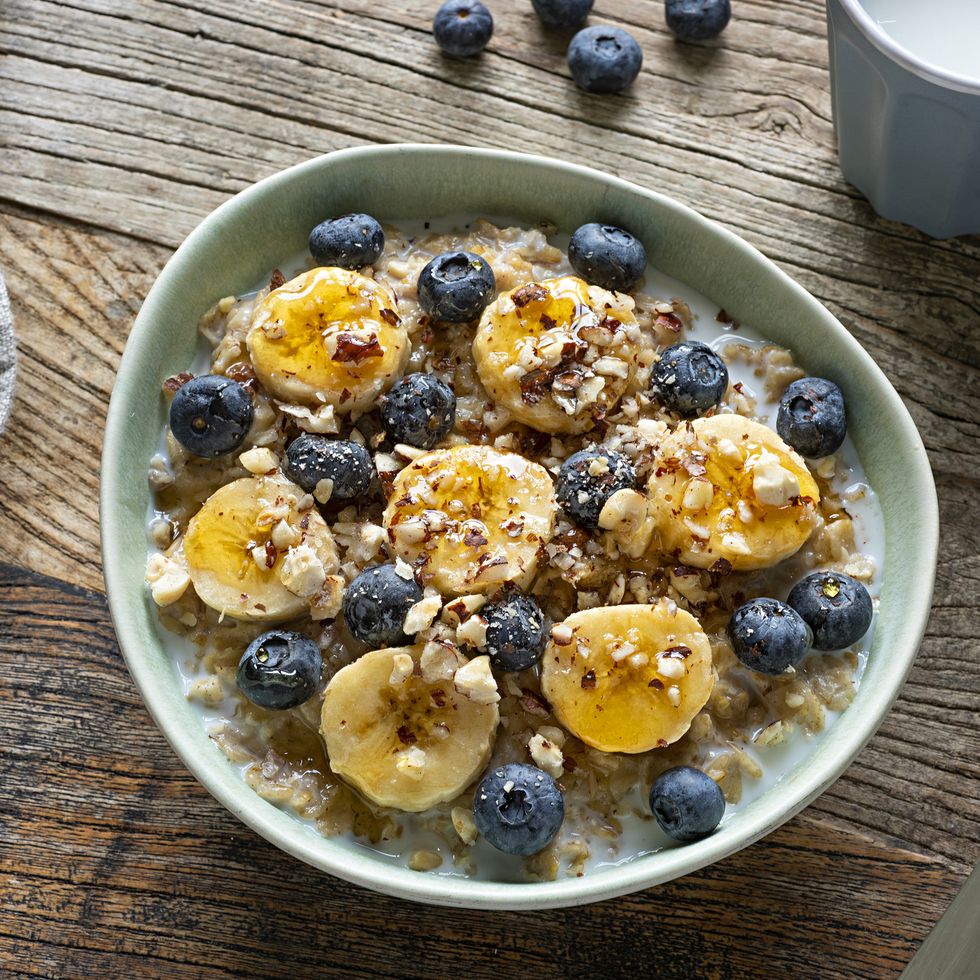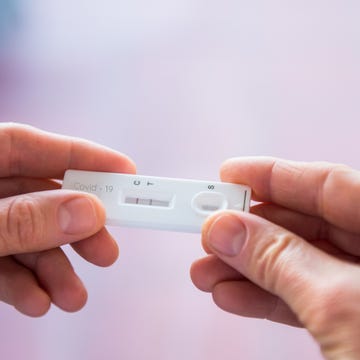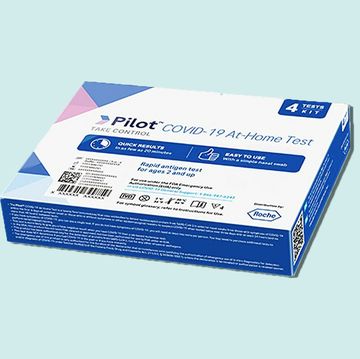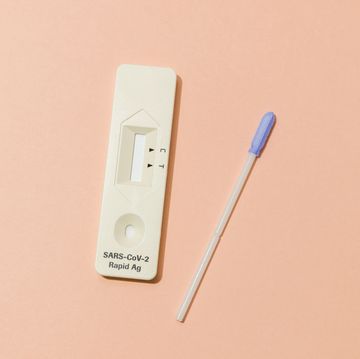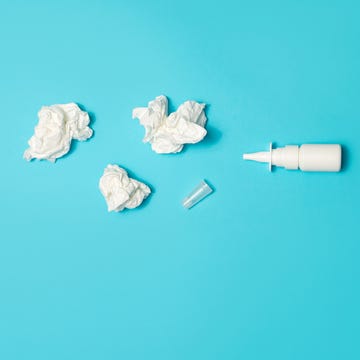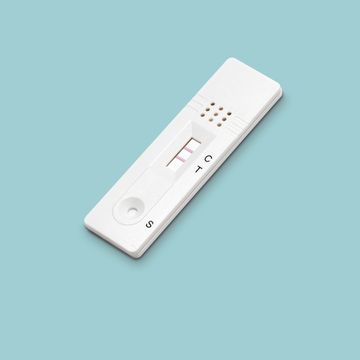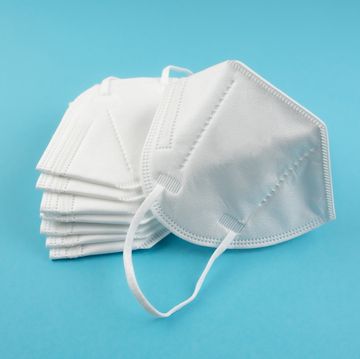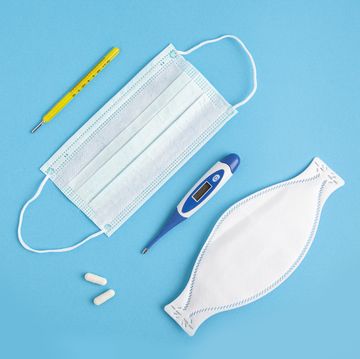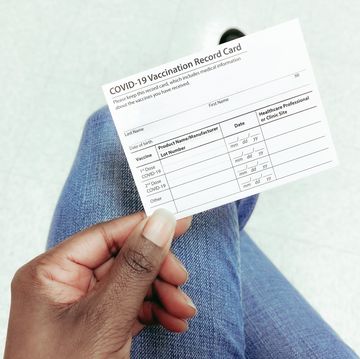Yes, COVID-19 is still around — and it's clearly not going anywhere anytime soon! But by now, we know exactly what to do if we test positive: Plenty of rest, lots of tissues and over-the-counter symptom relief products, and antiviral meds if your doctor prescribes them. Oh, and don't forget about the final piece of the treatment plan, which is to load up on foods that can help comfort and heal you.
No one food will magically help you recover from COVID-19, but "nutrition plays a major role in immunity, so the body needs all the nutritional support it can get when you're sick," says Linda Shiue, MD, director of culinary medicine at Kaiser Permanente in San Francisco. "Eating a varied diet that includes leafy greens, whole grains and legumes, as well as minimizing processed foods, is known to help with inflammation and provide nutrients that your immune system needs to function and produce antibodies to fight the infection."
Once you recover from COVID, it’s still important to continue feeding your immunity to help you stay healthy and primed to fight off other illnesses or future COVID reinfections. “Between 70% and 80% of the body’s immune system is housed in the gut, so eating a variety of food groups is key to keeping the gut microbiome diverse and able to enhance overall health,” explains Laura Iu, R.D., owner of Laura Iu Nutrition. “No single food will suddenly make
your immune system strong overnight, but consuming nutrient-dense foods over time plays a big role.” Focus on fiber-rich foods like whole grains, add fruits and vegetables whenever possible, include probiotic-rich foods like kimchi or kefir, cook with fats like canola and olive oil, and keep protein and iron-rich foods on rotation, Iu says.
Stuck with a cough and the sniffles? Time to soothe your symptoms and boost your immune system with these top foods for when you have COVID-19.
What to eat when you have COVID
1.Load up on vitamin C foods.
"Vitamin C is one important nutrient that aids in antibody production, immune cell function, and reducing oxidative stress, which can really help with preventing infection," says Rajesh Gulati, MD, interim chair of internal medicine in the School of Medicine at the University of California, Riverside. Vitamin C-dense winners:
- Red bell peppers
- Oranges, grapefruit, and other citrus
- Papaya
- Kiwi
- Broccoli, cabbage, and other cruciferous veggies
- Berries
2. Get some zinc and vitamin D
"Zinc is important for overall immunity and lung health," says Dr. Shiue, which is especially important when dealing with COVID-19 since it impacts the respiratory system. Vitamin D has also been shown to be important in preventing severe pulmonary COVID-19 symptoms, Dr. Shiue adds. Find zinc in seeds and nuts, oysters, and dark chocolate; get vitamin D through eggs (the yolk), oily fish like salmon and sardines, mushrooms, and fortified orange juice or dairy products.
3. Lean into aromatics.
Garlic, onion, ginger, scallions, leeks, shallots, chives — these flavor boosters boast anti-bacterial, anti-inflammatory and anti-viral properties, and they're all perfect for adding to chicken soup or bone broth. "I always like to look to traditional foods that are served in different ways across cultures to nurse loved ones back to health, and chicken soup is a classic that makes sense since it's nourishing and hydrating, plus provides immunity essentials like protein, iron and zinc, and vitamin-filled vegetables," says Dr. Shiue. "A plant-based alternative to chicken soup would be to use lentils and lots of veggies."
4. Focus on protein.
Cells break down when you're dealing with an illness like COVID, and protein is the number one macronutrient that can help repair them, says Amanda Holtzer, M.S., R.D., dietitian at Culina Health. When you’re feeling icky, your usual protein go-tos like meat, fish and legumes like beans may not be too appetizing, but these picks are also rich in protein and may be more comforting:
- Scrambled eggs
- Bone broth or bone broth-based soups
- Yogurt or kefir
- Smoothies with protein powder
- Toast with nut butter
- Tofu
5. Embrace herbs and spices.
Many of these flavor enhancers help fight inflammation and are rich in antioxidants, says Iu, and they can be especially helpful if you have diminished or lost sense of taste. “Season heavily with bold flavors like garlic powder, onion powder, black pepper, cayenne, cumin, and cinnamon so the flavors can come through,” Iu adds. Cayenne in particular is a good one to utilize if you can handle spicy — it has a high concentration of capsaicin, says Iu, an anti-inflammatory substance that gives it its kick and may help reduce nasal congestion. Fresh or dried ginger, low sodium curry blends, nutmeg, cloves and all fresh or dried herbs also fit the bill.
5. Try hydrating foods.
Hydration is super crucial to help your body function properly, both when you’re sick and healthy. Besides the most obvious hydration solution — liquids — most fruits and veggies are also high in H20, and many also contain minerals that function as electrolytes to help balance fluid levels in the body. But these are standouts:
- Berries
- Melons
- Citrus
- Cucumber
- Tomatoes
- Lettuces
If you’ve lost your appetite or sense of smell or taste, “smoothies are a great way to optimize your nutrition and hydrate,” Iu suggests. “You can use fresh or frozen fruits and vegetables, and it’s also a great opportunity to add things like yogurt, nut butters or protein powders for an extra nutrient boost.”
6. Go for whole grains.
Your body also needs carbohydrates to fuel the healing process, and whole grains are an ideal choice because they contain other nutritional necessities like fiber, vitamins, minerals and sometimes even a bit of protein. Smart picks:
- Oats
- Quinoa
- Barley
- Kamut
- Farro
- Brown rice
- Bulgur
- Fonio
- Teff
- Whole wheat bread, pasta, or crackers
7. Get some omega-3s.
This type of fatty acid helps tame inflammation, an important step toward recovering from an illness like COVID and staying healthy when you’re on the rebound. "Acute inflammation is responsible for the cytokine storm in COVID which makes people feel flu-like, and omega 3 fatty acids are thought to help with these symptoms," Dr. Shiue explains. Good sources of omega-3 fatty acids include:
- Chia seeds
- Ground flaxseeds
- Fatty fish like salmon, herring, sardines, trout, mackerel
- Walnuts
8. Add some spiciness
If you can handle heat and it doesn't bother your throat, have some spicy dishes to clear things up. "Spiciness can naturally decrease congestion. Korean cuisine boasts many spicy stews, which contain fermented foods like kimchi to provide gut-friendly probiotics," says Dr. Shiue. "Try kimchi jjigae, which contains kimchi, various protein sources, and sometimes mushrooms, which can be a source of vitamin D." If you're not in the mood to try something new, add fresh or dried hot chili peppers to your meals.
Target your symptoms
Besides helping with recovery, sometimes you just want something that helps you actually feel better. COVID symptoms vary by person and variant, but here’s what may ease some common symptoms:
Foods to avoid
In general, it’s a good idea to limit or avoid foods that are high in sugar or sodium, as well as alcohol. Also take a pass on highly processed foods that have minimal nutritional value, like chips, desserts and candy.
Bottom line: Homemade meals that contain whole grains, protein, and plenty of fruits and vegetables are ideal, as is staying properly hydrated — but “it's important to keep in mind that we all have different access levels to food, so it's okay if you need to lean on takeout, too,” says Iu. “At the end of the day, it's more important that you're actually eating.” That’s because when you have COVID, your body is under increased stress and typically needs more calories than you might normally consume, Iu explains, since it’s working harder to fight the infection.

Alyssa is a senior editor for the Hearst Health Newsroom, where she has written research-backed health content for Prevention, Good Housekeeping and Woman's Day since 2017. She has more than 13 years of reporting and editing experience and previously worked as research chief at Reader’s Digest, where she was responsible for the website's health vertical as well as editing health content for the print magazine. She has also written for Chowhound, HealthiNation.com, Huffington Post and more.
Stefani (she/her) is a registered dietitian, a NASM-certified personal trainer and the director of the Good Housekeeping Institute Nutrition Lab, where she handles all nutrition-related content, testing and evaluation. She holds a bachelor’s degree in nutritional sciences from Pennsylvania State University and a master’s degree in clinical nutrition from NYU. She is also Good Housekeeping’s on-staff fitness and exercise expert. Stefani is dedicated to providing readers with evidence-based content to encourage informed food choices and healthy living. She is an avid CrossFitter and a passionate home cook who loves spending time with her big fit Greek family.


